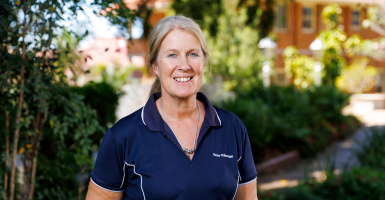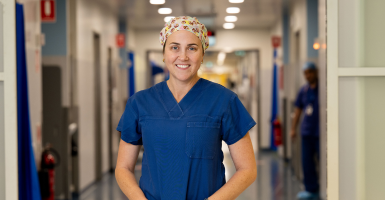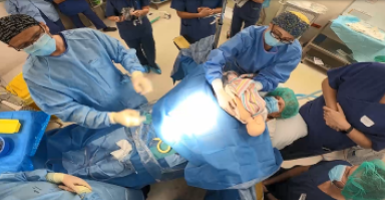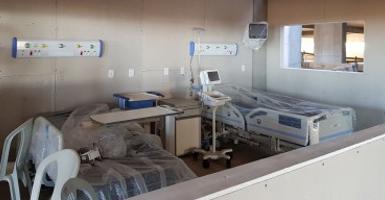Finding ways to take simulation to another level
The impact of the COVID-19 pandemic has increased demand for rapid change in process and systems within the healthcare industry to meet the changing recommendations being adopted to keep patients and staff safe during the pandemic.
The rapid change has in turn led to a need for more simulation training programs to prepare the workforce, this requires an increase in skilled educators to deliver these programs.
Meeting this need for Mater Education was one of the main drivers for Education Coordinator, Sharon Clipperton to embark on a mission to find new and better ways to train simulation trainers.
Sharon will begin exploring that idea from 2022 thanks to a Betty McGrath Education Seeding Grant.
The grants are a joint initiative of Mater Health, Mater Research, Mater Education and Mater Foundation, and provide start-up funding to Mater People for research that aims to improve patient care and can be readily translated into clinical practice or improve the delivery of clinical education.
Sharon’s project aims to develop a Translational Simulation (OptiSim) training program for Mater Educators and members of the Quality and Safety team.
Translational Simulation describes simulation with a primary purpose to improve patient care and health care systems by diagnosing safety and performance issues and applying simulation-based solutions. It has already shown promise at Mater and in other healthcare settings for the identification of latent safety threats, and in the design and development of new services and hospitals.
“While we have become accustomed to using simulation to train and educate healthcare workers, it’s still not widely adopted as a quality improvement tool – but we are changing that at Mater Education,” Sharon said.
“We’ve already used it to test new and expanded services and it proved an invaluable tool to ensure we were prepared for patients before the opening of the Mater Private Hospital Springfield,” she said.
“Thanks to the Betty McGrath Education Seed funding we’ll be able to develop, deliver and evaluate a Translational Simulation Faculty Development program using best practice educational principles, and then evaluate the long-term impact of using OptiSim training on health service delivery.
“There’s an increasing demand for this service both locally and across the state, so we hope this project will boost our capacity and capability to expand the OptiSim service delivery for both Mater ministries and the commercial market.”
While Sharon has worked in an education role at Mater for more than 10 years, this is her first foray into research.
“This project provides me with the opportunity to apply my current experience in the application of simulation in education and simulation faculty development to research the little-known topic of how to best teach and mentor the delivery of this simulation approach,” she said.
OptiSim is a translational simulation service delivered by Mater Education to Mater ministries and in the commercial space.
There has been increased demand for the service in new building and service delivery domains, with Mater Education delivering more than 50 OptiSim projects in the 2020-2021 financial year alone.
Sharon said while Mater Education had expert simulation staff, they had to increase their capability to train more staff who could develop, deliver and evaluate OptiSim projects across the organisation and state.
“This project will result in the embedding of an evidence-based training program within Mater Education to ensure the ongoing capability of the organisation to test building design, new services, workflow, equipment and procedures,” she said.
“By extending the program to safety and quality staff we’ll expand Mater’s ability to increase the number of projects we can deliver to ensure current and future demand is met.”
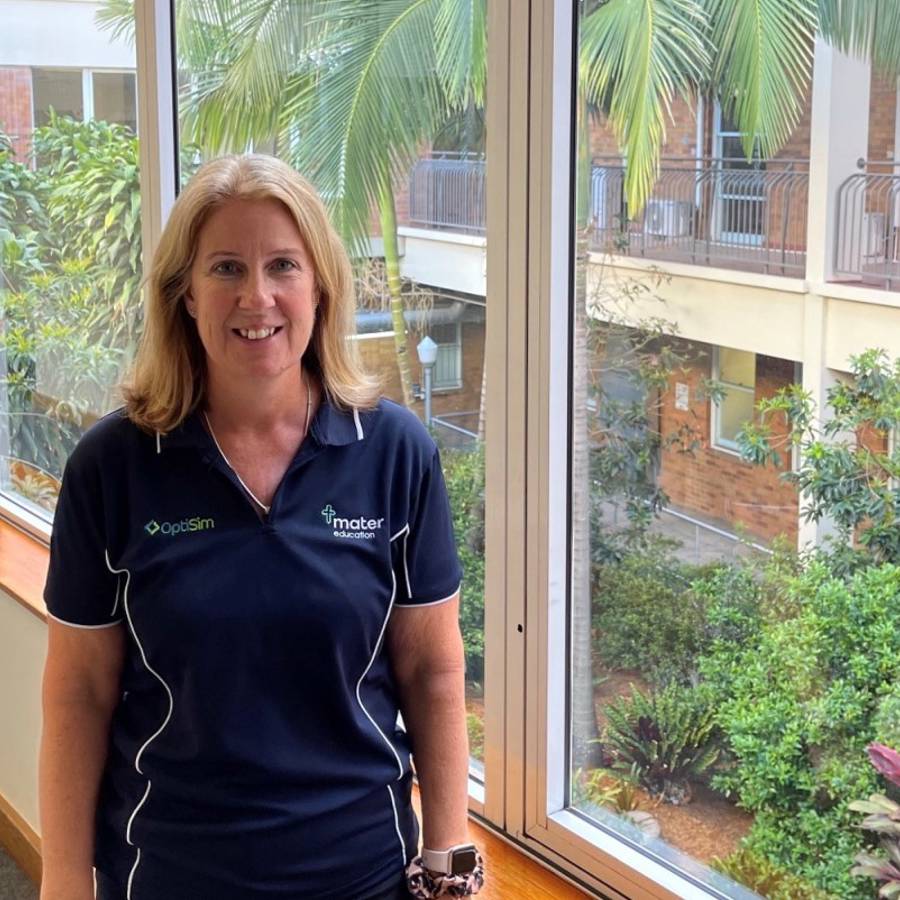
Sharon has been given the opportunity thanks to a Betty McGrath Education Seeding Grant that’s a joint initiative of Mater Foundation, Mater Education, Mater Health and Mater Research.
